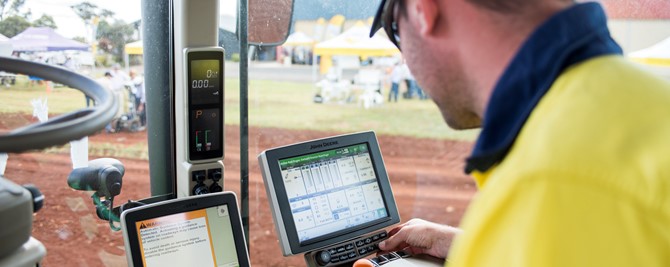Connectivity and inclusion in Far North Queensland's agricultural communities
Archive
- May 2022
- Apr 2022
- Nov 2021
- Oct 2021
- Sep 2021
- Jun 2021
- Nov 2020
- Oct 2020
- Sep 2020
- Aug 2020
- Jul 2020
- Jun 2020
- Apr 2020
- Oct 2019
- Sep 2019
- Aug 2019
- Jul 2019
- Jun 2019
- May 2019
Categories
- Policy Development
- Value Chain
- Economic Tools
- Innovation
- General
Back to Research Papers/Webinars

Connectivity and inclusion in Far North Queensland's agricultural communities
21 August 2019
Report Authors: Dr Amber Marshall (JCU/QUT) | Prof Allan Dale (JCU)| Prof Hurriyet Babacan (JCU)|Michael Dezuanni (QUT)
Funded by the Australian Communications Consumer Action Network (ACCAN) April 2019
Key findings
 In 2018, with funding from the Australian Communications Consumer Action Network (ACCAN), James Cook University partnered with Northern Gulf Resource Management Group to complete three-week-long data field trips to towns and properties across the Gulf Savannah. The lead researcher, Dr Amber Marshall, attended and presented at rural events, undertook interviews and focus groups, and conducted three case studies of cattle properties. These activities provided real-world context for the policy analysis undertaken in this report. This cross-level, cross-sector policy analysis was undertaken to determine the laws and strategies that impact rural and remote internet access, reliability and affordability, along with digital ability and capacity building frameworks.
In 2018, with funding from the Australian Communications Consumer Action Network (ACCAN), James Cook University partnered with Northern Gulf Resource Management Group to complete three-week-long data field trips to towns and properties across the Gulf Savannah. The lead researcher, Dr Amber Marshall, attended and presented at rural events, undertook interviews and focus groups, and conducted three case studies of cattle properties. These activities provided real-world context for the policy analysis undertaken in this report. This cross-level, cross-sector policy analysis was undertaken to determine the laws and strategies that impact rural and remote internet access, reliability and affordability, along with digital ability and capacity building frameworks.
The findings (11 in total) address issues ranging from barriers to connection (such as lack of continuity in the telecommunications network); social factors impacting digital resource allocation and consumption (such as intergenerational and gender‐related circumstances); threats to agricultural industry (such as the need to preserve product integrity and to attract/train workers); and consumer‐level insights (such as population heterogeneity and expectations of fairness). These comprehensive findings give rise to several recommendations for federal, state and local governments in partnership with community and industry organisations.
These include:
- Improve basic infrastructure and services at local scales, including diversifying service plans to meet specific needs
- Embrace alternative connectivity infrastructure, whereby state and federal government partners with the regions to collaboratively fill infrastructure and service gaps
- Redefine affordability at the federal level, to ensure the true cost of being connected in the bush is realised and accommodated
- Deliver targeted digital capability building programs to address many farmers’ thirst for digital skills
- Develop digital mentors, support brokers and upskill remote workers, to help ensure digital skills programs are relevant and rolled out in situ
- Empower rural local governments and community organisations to plan and deliver through strategic linkages with the broader national digital inclusion ecosystem
- Adopt principles for a holistic approach to digital inclusion policy that recognises the critical role of digital capacity building to social and economic

To read the full FNQ Digital Inclusion report please click here

